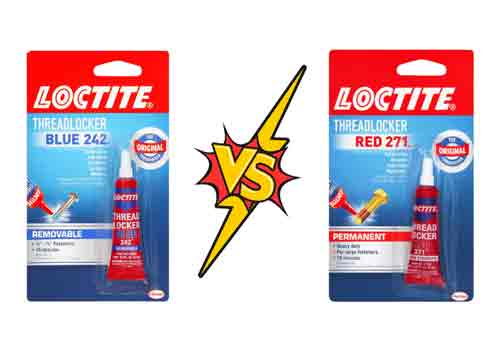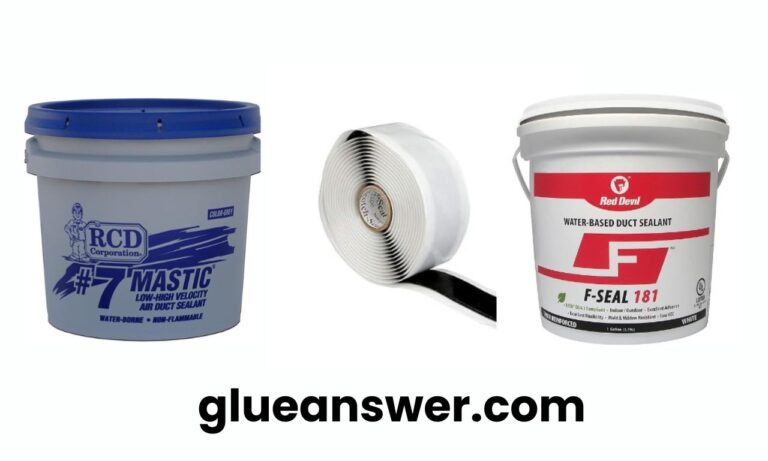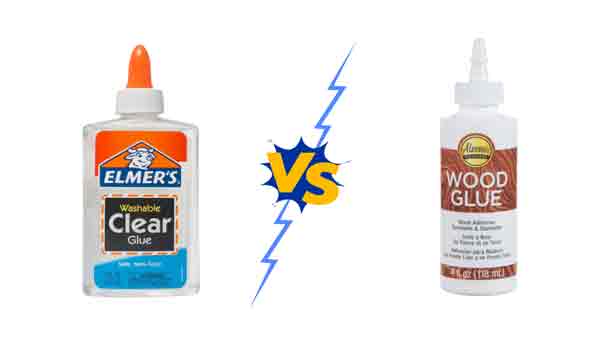Will glue down vinyl flooring warp or bend?
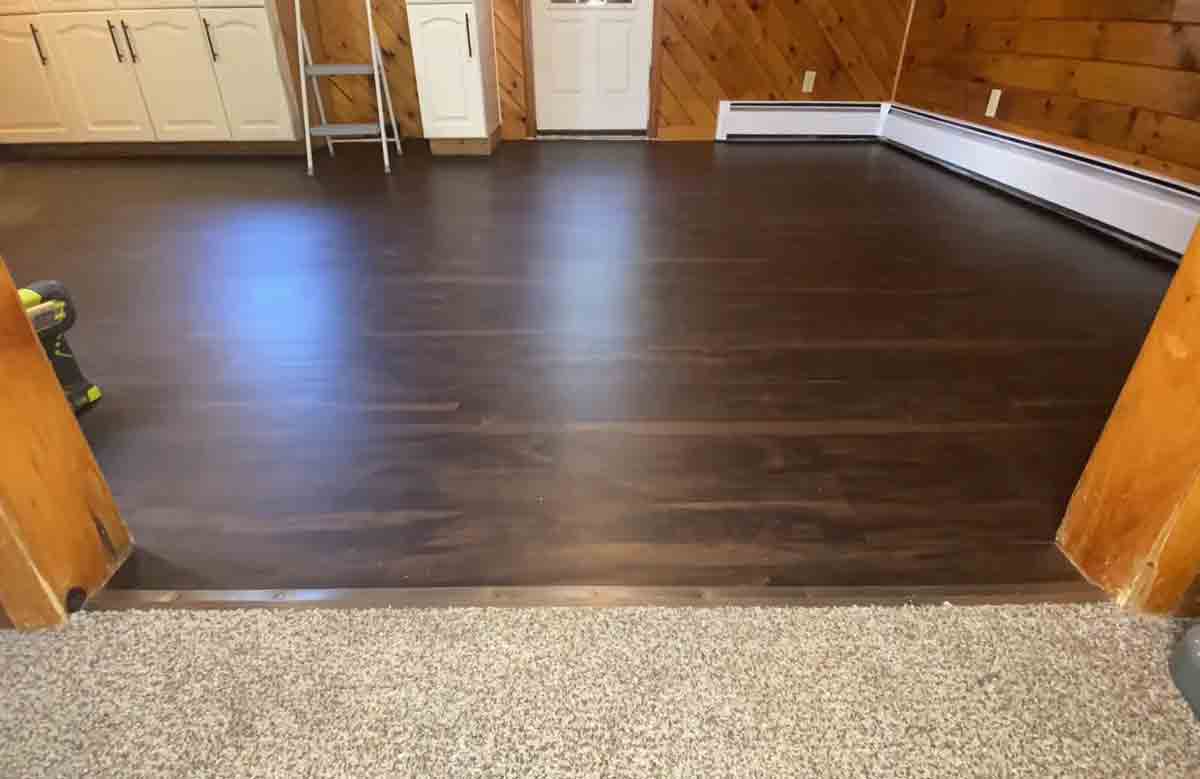
Glue-down vinyl flooring is generally less prone to warping or bending compared to other types of flooring like hardwood. Warping in vinyl flooring often results from sunlight exposure during installation, prompting planks to expand.
For glue-down tiles and planks, water spillage left unattended can seep through seams, compromising the adhesive bond and leading to warping. Prevent issues by scheduling installations during shaded periods, using temporary coverings, and promptly cleaning up spills to protect the integrity of your vinyl flooring.
When installed correctly, the adhesive creates a strong bond between the vinyl planks and the subfloor, minimizing the risk of warping.
When it comes to vinyl flooring, ensuring a flawless installation is key to long-term durability and aesthetics. One common concern is the potential for warping, which can result from various factors.
In this guide, we’ll explore two significant causes of warping in vinyl flooring and how to prevent them.
Read More About 5 Top Picks: The Ultimate Guide to the Best Glue for Vinyl Plank Flooring Installation
1. Sunlight Exposure during Installation:
Exposure to direct sunlight during the installation process can lead to unwanted warping in vinyl planks. The intense heat causes the material to expand, creating issues that may affect the flooring’s overall appearance and performance.
Preventive Measures:
- Schedule installations during periods of minimal sunlight exposure.
- Use window coverings or temporary shades to limit direct sunlight on the flooring during installation.
- Store vinyl planks in a shaded area prior to installation to minimize temperature-related expansion.
2. Water Seepage in Glue-Down Installations:
For glue-down vinyl tiles and planks, improper sealing and water spillage can be culprits behind warping. If water seeps beneath the flooring through seams and is not promptly cleaned up, it can compromise the adhesive bond and lead to warping.
Preventive Measures:
- Ensure a meticulous and thorough adhesive application during installation.
- Wipe up spills immediately to prevent water from seeping into seams.
- Regularly inspect seams and edges for any signs of water damage or vulnerability.
By understanding the causes of warping in vinyl flooring and taking proactive measures during installation and maintenance, homeowners can safeguard their investment. Whether opting for click-lock, glue-down, or other installation methods, careful attention to environmental factors and timely maintenance can significantly contribute to the longevity and visual appeal of vinyl flooring.
However, there are some factors to consider:
- Subfloor Preparation: It’s crucial to ensure that the subfloor is smooth, flat, and free of any imperfections before installing glue-down vinyl. Uneven subfloors may contribute to bending or warping.
- Adhesive Quality: The type and quality of adhesive used play a significant role. Using the recommended adhesive and following the manufacturer’s guidelines for application is essential to achieve a secure bond.
- Climate and Temperature Changes: Extreme temperature fluctuations or high humidity levels can affect any flooring material. While vinyl is more resistant to these changes than natural materials, it’s still a good practice to maintain a stable indoor environment.
- Proper Installation: Professional installation or careful adherence to installation guidelines is essential. Incorrect installation, such as inadequate adhesive application or improper seam sealing, can lead to issues like warping over time.
- Quality of Vinyl Flooring: The quality of the vinyl flooring itself matters. Higher quality vinyl planks are often more stable and less prone to warping.
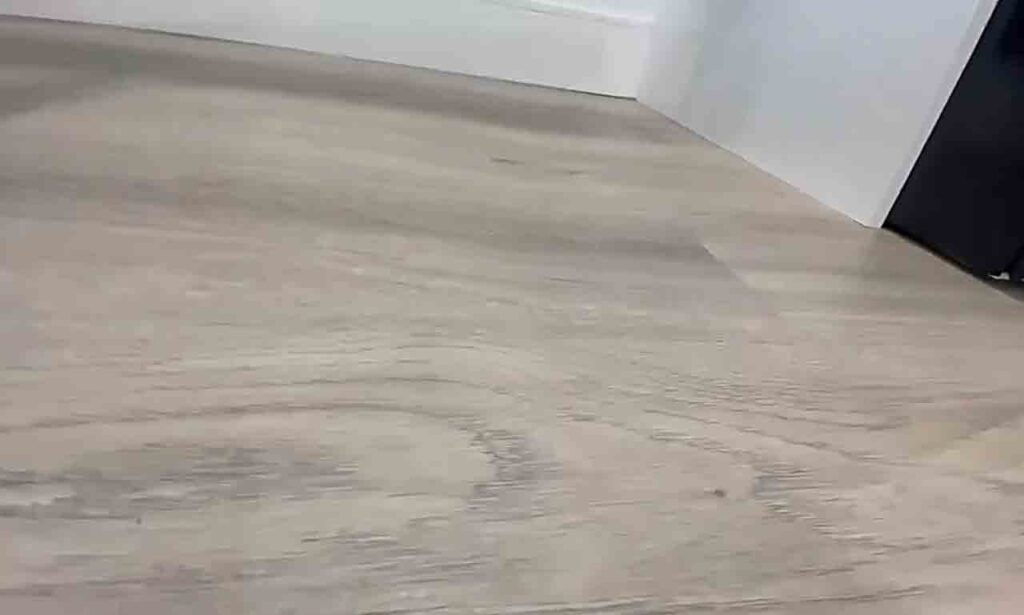
Read Also Do You Need Transition Strips For Vinyl Flooring: Expert Opinion
Glue down vs floating floor on concrete
1. Glue-Down Flooring on Concrete:
- Stability: Glue-down installation provides a more stable and permanent bond with the concrete subfloor.
- Reduced Sound Transmission: Glue-down floors often result in less sound transmission compared to floating floors, making them suitable for multi-story buildings.
- Moisture Resistance: Glue-down installations can be more resistant to moisture since there are fewer open seams for water to penetrate.
- Thinner Profile: Glue-down floors usually have a lower profile, which can be advantageous when dealing with height constraints.
2. Considerations:
- Difficulty of Removal: Glue-down flooring can be more challenging to remove or replace than floating floors.
- Professional Installation: This method often requires professional installation to ensure a proper bond.
3. Floating Floor on Concrete:
- Ease of Installation: Floating floors are generally easier and faster to install without the need for adhesives, making them a good DIY option.
- Less Permanent: Floating floors can be more easily removed and replaced, providing flexibility for future changes.
- Thickness Options: Floating floors can accommodate underlayment for added insulation or soundproofing.
- Less Subfloor Preparation: They can sometimes be installed over imperfect concrete surfaces without extensive preparation.
4. Considerations:
- Potential for Movement: Floating floors can shift or move slightly, which may result in a hollow sound when walked upon.
- Moisture Considerations: While many floating floors are designed to resist moisture, it’s essential to address any concrete moisture issues before installation.
Ultimately, the choice between glue-down and floating floor on concrete depends on factors like the desired level of permanence, ease of installation, sound considerations, and the specific conditions of the concrete subfloor. Consulting with a flooring professional can help in making the most suitable decision for your specific needs.
Can you glue down click lock vinyl floor?
Gluing down click-lock vinyl flooring is generally not recommended. Click-lock vinyl flooring is designed to be a floating floor system, where the individual planks or tiles lock together without the need for adhesive. The locking mechanism provides a secure and stable connection between the pieces.
Gluing down click-lock vinyl may interfere with the locking system and limit the flexibility of the floor. Additionally, gluing down this type of flooring can make future repairs or replacements more challenging.
If you have a specific situation where you believe gluing down the flooring is necessary, it’s essential to consult the manufacturer’s guidelines and specifications for the particular product you are using. However, in most cases, click-lock vinyl flooring is intended for floating installations without the use of adhesive.
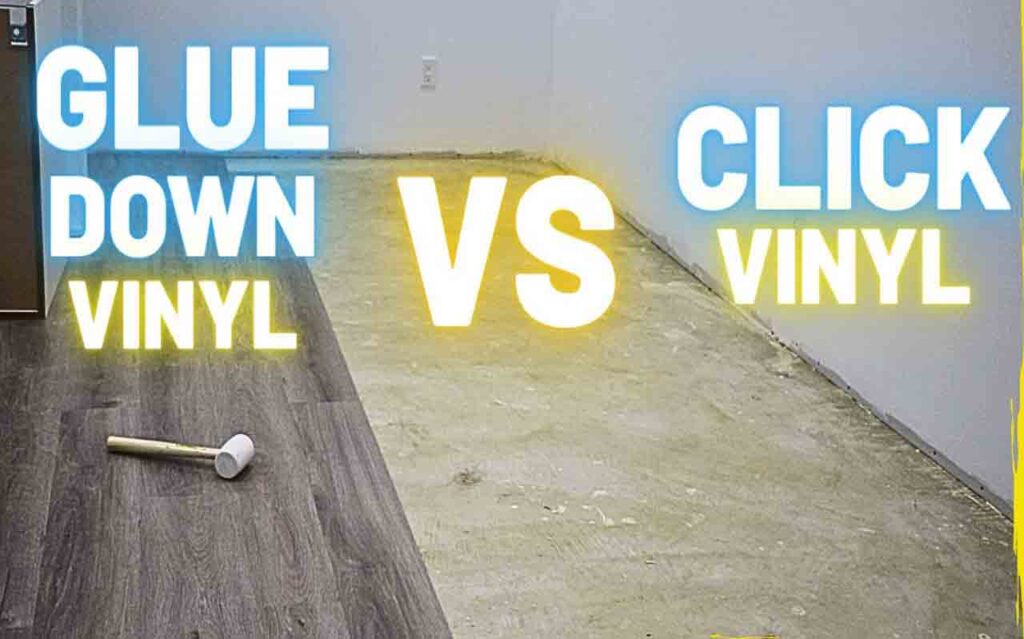
FAQ
Does glue down vinyl expand and contract?
Expansion and Contraction: Glue-down vinyl can expand and contract with temperature changes, but proper installation, subfloor preparation, and climate control help minimize these effects.
Can vinyl flooring warp?
Warping: While glue-down vinyl is less prone to warping than some materials, poor installation, subfloor issues, or extreme conditions can contribute to warping over time.
What are the disadvantages of glue down vinyl plank flooring?
Disadvantages: Potential downsides include difficulty in removal, time-consuming installation, and the need for a smooth subfloor. Warping can occur if not installed correctly.
Is it a good idea to glue down vinyl plank flooring?
Good Idea: Glue-down vinyl plank flooring is a good idea for stable environments, meticulous installation, and where a more permanent, durable flooring solution is preferred.
In summary, when installed correctly with proper adhesive on a suitable subfloor, glue-down vinyl flooring is a durable and stable option. However, it’s essential to follow manufacturer recommendations and guidelines to ensure a successful and long-lasting installation.

